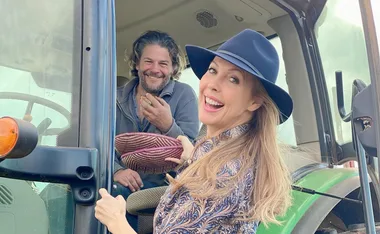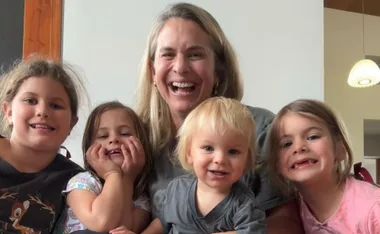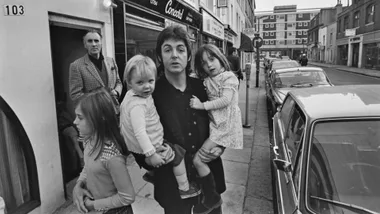The number of Australian kids who are not vaccinated is growing, putting all children at risk of potentially fatal diseases. Mum-of-two Zoe Arnold explains why there is no excuse not to immunise your kids.
Picture this: a screaming infant sitting in a trolley, with his stressed mother pushing him as quickly as possible through a supermarket checkout. It’s busy and onlookers feel sorry for the woman, trying to collect her weekly groceries.
Then: a fountain of milky vomit erupts from the baby’s mouth — splashing the floor and counter next to a shocked checkout worker. The baby continues screaming.
This sounds dramatic, but it’s a true story of my little brother, still a baby when he contracted whooping cough. He was immunised, but another baby was not.
I remember that cough of my brother’s. It sounded like the name suggests — “whoop, whoop” — often followed by a vomit, and a terrible scrambling for breath.
It was scary: he was small and helpless, and turned a frightening purple during each episode.
Science shows us that vaccinating our children is the most effective way to reduce the spread of dangerous, potentially deadly diseases like whooping cough.
Yet there are still an alarming number of people who formally refuse to immunise their children.
To be clear: I am not a doctor, or a trained medical professional. But I am a mother of two children and I do comprehend science. There is no need for our immunisation rate to be less than 100 percent — but it is.
While it stinks that anyone would want to put their own child’s health at risk, what’s even worse is that they’re endangering the rest of us with their blasé attitude towards the vaccination process.
For four years now, Australia has been experiencing a whooping cough epidemic: with an estimated 38,500 Australians suffering through the disease in 2011.
Modern medicine means most of those who catch the disease will be okay in the end, but for little babies it is especially dangerous and difficult to treat.
It’s not just whooping cough: last year, NSW Health issued multiple alerts about the dangers of measles in that state with the highest numbers of the disease recorded in 14 years.
“People with measles usually feel extremely unwell,” Dr Jeremy McAnulty from NSW health says. “Symptoms include a high fever, tiredness, runny nose, cough and sore eyes before a blotchy red rash appears.
“Measles is incredibly contagious but is preventable through vaccination.”
So why wouldn’t you want to protect your children and yourself from these deadly diseases? Misinformation is usually to blame. So-called “conscientious objectors” run websites and issue brochures claiming that the vaccination process is dangerous.
It’s not.
Decades of research shows that fully immunising our children gives them the best chance of avoiding diseases like measles and whooping cough. Yes, there’s still a chance you can be infected, but nowhere near as seriously.
If you aren’t convinced about the benefits of immunising, take a look at polio. Until a vaccine was developed in the 1950s, thousands of children were crippled by polio every year.
Many would die, or be left with devastating disabilities. Today, all but four countries in the world are polio-free, thanks to a handy little vaccine.
There are lots of things to think twice about when you have children: whether to breast or bottle feed them; which daycare is right for you; which method of parenting works in your house. But vaccinating your child isn’t something to think about twice; as it’s every child’s right to have the healthiest start possible.
To find out more about immunisation, visit the Department of Health and Ageing.







.png?resize=380%2C285)



